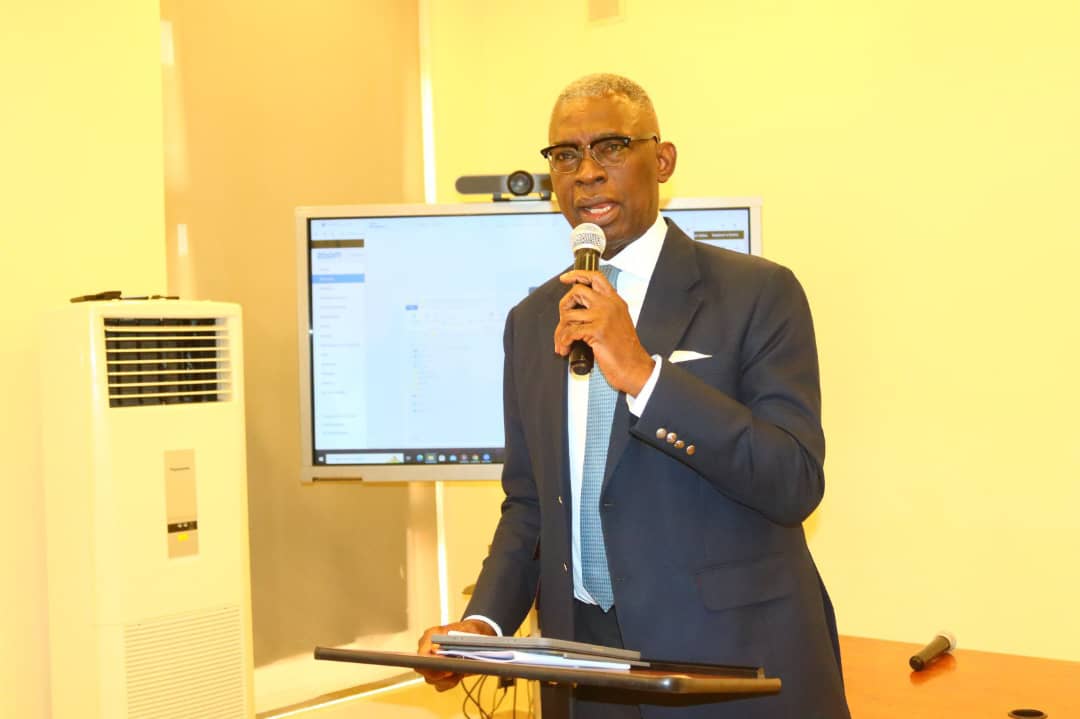By Charles Maduka
Mr Olasupo Shasore, SAN, a former Attorney-General of Lagos State, has emphasised that there is a clear distinction between the original inhabitants of Lagos and those who reside in the city. He made this point during a roundtable discussion on Land and Power in Lagos, organised by the Institute of African and Diaspora Studies at the University of Lagos on 13th August 2024.
In his keynote address at the event, Mr Shasore questioned the commonly accepted history of Lagos, arguing that it overlooks the natural processes that led to human settlement in the area. He explained that people have always settled near water due to its importance, and this has been true for Lagos as well. He suggested that the history of Lagos goes much deeper than the story of the first settlers.
Mr Shasore also proposed a collaboration between his team and the University of Lagos to conduct archaeological research in certain areas of Lagos to uncover more about the city’s past.
He pointed out that Lagos is unique among Nigeria’s 36 states because it is home to people from many different ethnic groups, making it a truly global city. He traced Lagos’s cosmopolitan nature back to the 19th century when freed slaves from Sierra Leone and Brazil, known as Saros and Agudas, settled in Lagos and mixed with the local people.
While acknowledging that Lagos is a city that welcomes everyone, Mr Shasore stressed that the original inhabitants of Lagos have their own rights, and these should not be overlooked. He referred to several historical events, like the 1861 Treaty of Cession and the 1978 Land Use Decree, that have impacted the rights of Lagos indigenes.
Mr Shasore clarified that being a citizen of Lagos is a constitutional right for any Nigerian who lives and works in Lagos, but being an indigene is different. He argued that both identities can coexist, with each having its own set of rights.
He concluded by warning that the welcoming nature of Lagos should not be taken for granted, particularly by making statements like “Lagos is a No Man’s Land.”
Three different panels followed Mr Shasore’s well-received keynote presentation. Panel 1 focused on Land Contestation and Spatial Displacement, Panel 2 on “Who is Lagos? What is Lagos?” and Panel 3 on “Is Lagos Really a No Man’s Land?”
Appearing on Panel 1 alongside three other eminent personalities, Dr Esther Thontteh, a Land Administration and Management Specialist, identified the Land Use Decree as the single most significant act which nationalised cultural lands and set the stage for contestations between statutory and customary rights.
On Panel 2, an Elder Statesman, Dr Patrick Dele Cole, defined a Lagosian as “anyone who has a claim to being a Lagosian.” He averred that “Lagos is big enough to accommodate all its competing claims, but progress should not contaminate us. We should find a way to be ourselves while we are progressing.”
On Panel 3, Prof Patrick Oloko spoke of a “Spirit of Lagos” which attracts, refines, and infuses its inhabitants, indigene or resident, with the “capacity to grow and ‘blow.’” According to him, “Lagos defines itself as being somebody’s land, but its culture and energy derive from the overwhelming and simultaneous exhibition of multiple cultures.”
The blended event was well attended by a diverse audience of students, scholars, policymakers, indigenes, and residents of Lagos who leveraged the platform to express their respective views on a subject which promises to be an ongoing conversation on national and continental development.






Leave a Reply